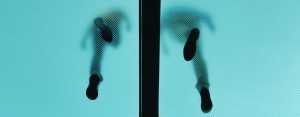Peer Review Calibration and Constructive Feedback Workshop

At a Glance
Discipline
- STEM
- Engineering
Instructional Level
- University
Tasks in Workflow
Social Plane(s)
- Individual
Type of Tasks
- Discussing
- Reviewing & assessing peers
- Writing
Technical Details
Useful Technologies
- Peerceptiv peer assessment software
Class size
- Large (100-250)
Time
- Multiple class periods (2-3 classes)
Instructional Purpose
- Consolidation & metacognition
Overview
The major goal of this activity is to familiarize students with the peer review process and teach them how to accept criticism from their peers.
In Class 1, a peer calibration exercise is performed whereby the instructor gives the students a paper to edit. The students mark the paper using a predefined grading rubric. The students are then asked to compare their evaluation with that of their neighbours and through a polling exercise, students are shown that, typically, the difference between their final grade and that of their neighbour will range from one to two marks.
The instructor then shows the students how they marked the paper. Through a polling exercise, they demonstrate that typically, the difference between the final mark given by the instructor and those of the student reviewers is usually within one to two marks.
Outside class, students are then asked to write a response to an ethical dilemma.
In Class 2, students bring their response to class and switch their paper with a neighbour. The students then edit each other’s papers using a predefined grading rubric and hand them back to each other.
Outside of class, the students will then edit their papers and either accept or reject the reviewer’s comments. The final draft is then submitted to Peerceptiv (a peer reviewing software).
Through the Peerceptiv software, the students are assigned five of their peers’ papers to evaluate (here students play the role of reviewer). The authors of each paper must also evaluate their five reviewers.
A final grade is given based on timely task completion, a weighted average of the five year reviews (based on their proximity to each other, outliers are weighted less), and on how well they did as a reviewer (which is based on how high their evaluation was weighted on Peerceptiv and also on author evaluation).
This activity was performed in a class of 200 students.
Instructional Objectives
Students will be able to:
- Evaluate a paper based on a given rubric
- Revise their written work based on reviewer’s feedback
Workflow & Materials

Activity Workflow
Applied Strategies
Published: 18/09/2018
Copyright: © 2025 Chen. This is an open-access article distributed under the terms of the Creative Commons Attribution License (CC BY). The use, distribution or reproduction in other forums is permitted, provided the original author(s) and the copyright owner(s) are credited and that the original publication on this website is cited, in accordance with accepted academic practice. No use, distribution or reproduction is permitted which does not comply with these terms.



